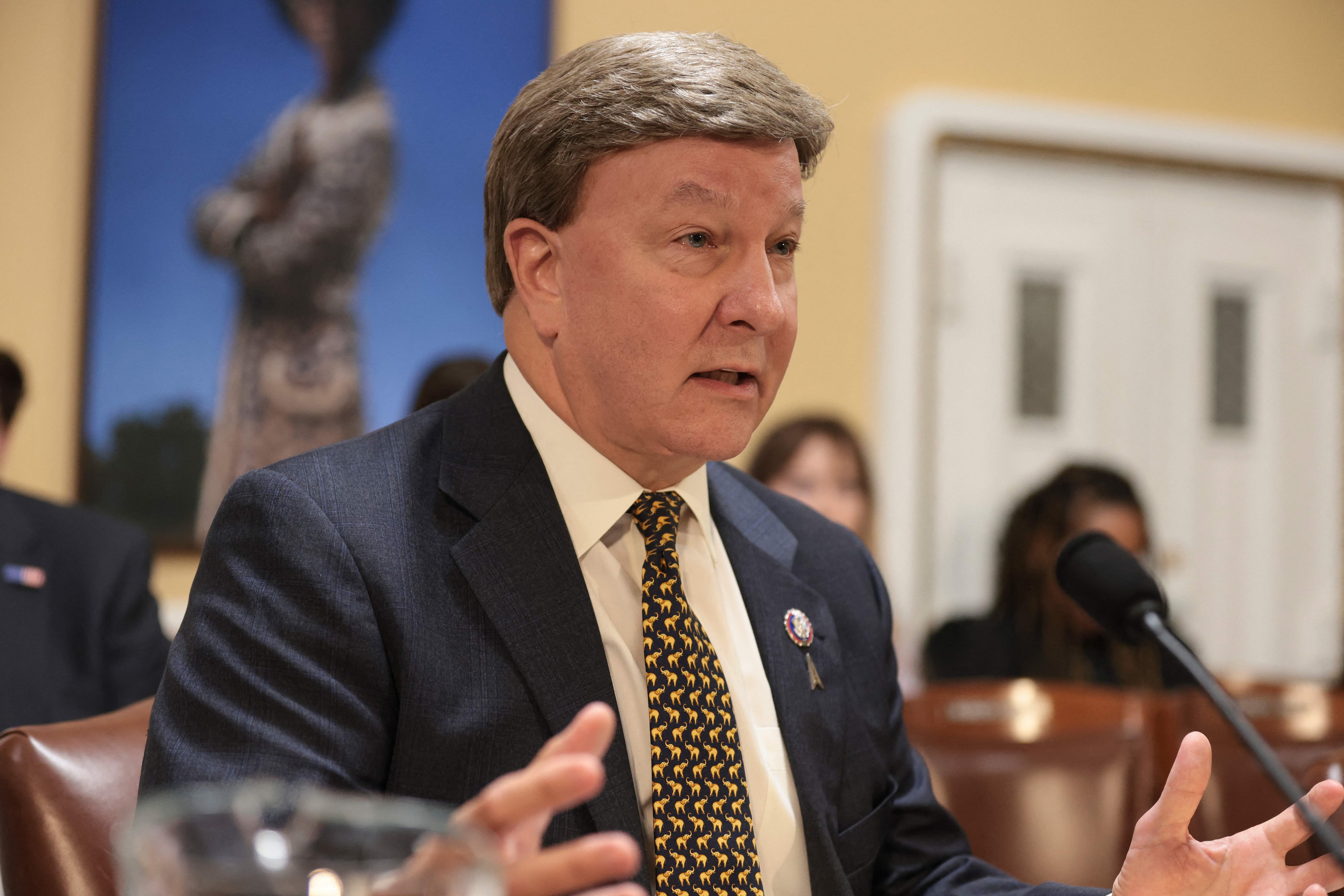WASHINGTON — The chairman of the House Armed Services Committee said he’ll seek a U.S. Department of Defense inspector general investigation into the decision to base U.S. Space Command headquarters in Colorado Springs, Colo.
During a Sept. 28 committee hearing about the Space Command basing decision, Chairman Mike Rogers, R-Ala., said he will continue to push for legislation that restricts military construction funding from being used to build a permanent headquarters facility at Peterson Space Force Base in Colorado.
“Congress gets to decide what we’re going to authorize and what we’re going to pay for,” he said. “It is my intent to make sure the competition results are honored and that the permanent basing headquarters are authorized and funded to be constructed in Huntsville, Alabama.”
Rogers and other lawmakers claim the decision — made by President Joe Biden and informed by a years-long Air Force basing effort — was influenced by politics and the process included “striking irregularities.”
The potential inspector general investigation and proposal to pause work to establish a permanent Colorado headquarters follows a four-year effort to identify a home for Space Command. Since its re-establishment in 2019, the department’s newest combatant command has been temporarily based in Colorado Springs. In 2021, just as former President Donald Trump was leaving office, the White House announced Huntsville as its pick for the organization’s headquarters.
The decision sparked pushback from Colorado lawmakers, largely led by Rep. Doug Lamborn, R-Colo., who called the Air Force’s selection process “fundamentally flawed.” Lamborn requested a Government Accountability Office review of the decision and a DoD inspector general investigation. Both inquiries determined that while the basing process lacked transparency and credibility, the Air Force followed the law in choosing Alabama.
Despite the conclusion of the watchdog investigations, the White House announced July 31 it had abandoned the Trump administration’s previous decision and that Space Command would remain in Colorado in order to maintain “peak readiness.”
Rogers, as leader of the influential House committee, immediately launched his own congressional investigation, threatened to subpoena DoD officials for documents and called for another GAO review of the Air Force basing process.
Operational readiness
Defense Department officials testified during the hearing that the decision to keep the command in Colorado Springs is tied to “operational readiness” concerns.
Air Force Secretary Frank Kendall, who took office in July 2021, led a reevaluation of the Trump administration’s basing analysis that focused on facilities needs and workforce requirements. He told lawmakers that the results were consistent with the previous basing process, identifying Huntsville as the most affordable location and highlighting Colorado Springs as the site with the lowest operational risk.
While Kendall thought that there were potential “mitigations” to those operational risks, he said Space Command Commander Gen. James Dickinson “assessed those considerations quite differently,” which drove the White House’s final decision.
“The decision came down to a judgment about the operational risk associated with relocating versus the reduced cost of the leading alternative of Huntsville,” Kendall said. “I fully support the president’s judgment in this matter, given the intensifying threat. And with a final decision now . . . we are prepared to move forward with the implementation of this basing decision.”
Dickinson said during the hearing that keeping Space Command in Colorado will allow the organization to maintain mission readiness and retain civilian personnel, which currently makes up 60% of its workforce. Were the headquarters to move south, the command estimates 88% of those civilians would opt not to transfer to the new location.
Rep. Terri Sewell, D-Ala., pushed back on the claim that locating Space Command headquarters in Huntsville would impose risk to its mission.
“The able and ready workforce that’s there in Huntsville can more than accommodate the operational readiness,” she said.
Courtney Albon is C4ISRNET’s space and emerging technology reporter. She has covered the U.S. military since 2012, with a focus on the Air Force and Space Force. She has reported on some of the Defense Department’s most significant acquisition, budget and policy challenges.





